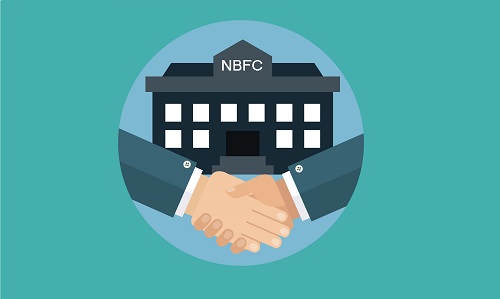RBI Issue Guidelines for Licensing of Small Finance Banks in the Private Sector

Dashmeet Kaur | Updated: Nov 19, 2019 | Category: RBI Advisory
Considering the financial needs of unserved sections of our society, RBI creates a new segment of banks called Small Finance Banks (SFB). It has the main objective of furthering financial inclusion by supplying credit and provision of savings vehicles through high technology. SFB’s target audience is a marginal group of farmers, unorganised entities, micro & small industries and small business units.
Such banks are similar to other commercial banks. They perform the activities of lending and receiving deposits with low-cost operations. Lately, RBI has released on-tap guidelines for Small Finance Banks license in the public sector that flipped the whole scenario. This blog will update you with every substantial detail of SFB license.
Table of Contents
The Crux of RBI Guidelines for Small Finance Banks License
If you want to obtain a license for Small Finance Banks, it’s essential to acquire knowledge of its procedure, eligibility criteria, objective, capital requirement, scope etc. Let’s have a look at the various set of guidelines for licensing of small finance banks in the private sector:
- As per the Reserve Bank of India, the Small Finance Banks shall get registered as a public limited company under Companies Act, 2013.
- Further, under Section 22 of the Banking Regulation Act, the SFB license shall be given.
- Moreover, residents who own the Companies and Societies for 5 years will also be eligible as promoters to establish SFBs.
- Along with that, the existing (NBFC) Non-Banking Finance Companies, (MFIs) Micro Finance Institutions, and Local Area Banks (LABs) can apply for SFB’s licenses.
- Besides, the RBI enables payment banks to apply for Small Finance Banks. Since both fall under the same structure, i.e., non-operating financial holding company (NOFHC).
- To obtain an SFB license, the applicants will require to present their viable business plan.
- The minimum paid-up equity capital required for setting Small Finance Banks is Rs 200 crore.
What does the SFB license at on tap basis means?
RBI has initiated on tap SFB licensing to promote banking facility for small borrowers. The ‘on-tap’ facility permits the RBI to accept applications and grant Small Finance Bank licence throughout the year. It facilitates the aspirants to approach the central bank at any time in case they meet the set conditions. Furthermore, the eligible entities do not need to wait for licences as it will be available on-demand basis.
Note – RBI states that it would take more time to analyse the performance of payments banks before acknowledging the ‘on tap’ licensing facility for them.
Objectives of a Small Finance Bank
The objectives for setting up Small Finance Banks must revolve around promoting financial inclusion by:
- Provision of savings vehicles to unserved and under-served sections of India.
- And, a supply of credit to unorganized entities like small and marginal farmers, small business units, micro and small Industries via high technology-low cost operations.
Eligibility criteria to attain SFB License
If you want to access an SFB license, then you must pass the given eligibility criteria:
- Resident individuals or professionals having ten years of experience in banking and finance are eligible.
- Companies and Societies handled by residents also have the right to be the promoter of Small Finance Banks.
- Residents that regulates the activities of existing Micro Finance Institutions (MFIs), Non-Banking Finance Companies (NBFCs) and LABs can also choose to transform into small finance banks.
- However, they have to comply after with all legal requirements of various authorities.
- RBI does not permit different groups of promoters to set up SFBs jointly. Since the key criteria to obtain such a license resonates more with local players.
- Local players are those who are those focus on lending funds to unserved/under-served sections of the society.
- The proposals from the large public sector, business houses, or entities which promotes NBFCs shall not be entertained.
Capital Required
The minimum paid-up equity capital for SFB shall be Rs. 200 crore. Because of the inherent risk involved in Small Finance Bank, it requires to maintain a minimum capital adequacy ratio of 15% of its risk-weighted assets (RWA) simultaneously. The percentage may subject to vary as per RBI guidelines from time to time.
Contribution of Promoters
RBI has even fixed the minimum amount of contribution for promoters which is as follows:
- The initial minimum contribution of promoters or the paid-up equity capital of SFB must be at least 40 per cent.
- In case the initial shareholding by a promoter in the bank is more than 40 per cent, then it should be lower down to 40 per cent within five years.
- The paid-up equity capital of promoters shall get locked in for five years from the date of commencement of the bank.
- Furthermore, the promoter’s stake should be brought down to 30 per cent of the paid-up equity capital of the bank within ten years. And, up to 26 per cent within 12 years from the date of commencement of business.
- After a Small Finance Bank reaches the net worth of Rs. 500, it requires to get listed within three years.
- However, an SFB with less than Rs. 500 crore net worth capital has the option to get their shares listed on a volunteer basis.
Conclusion
RBI’s new guidelines will strengthen the game for payment banks. Since the existing rules do not permit payments banks to lend and deposits more than ₹1 lakh per customer. The license for Small Finance Banks will provide the benefit to such entities. After obtaining the SFB license, payment banks will get access to more deposits and boost their profitability.
Also, Read:How to Start a Small Finance Company in India: Complete Checklist














